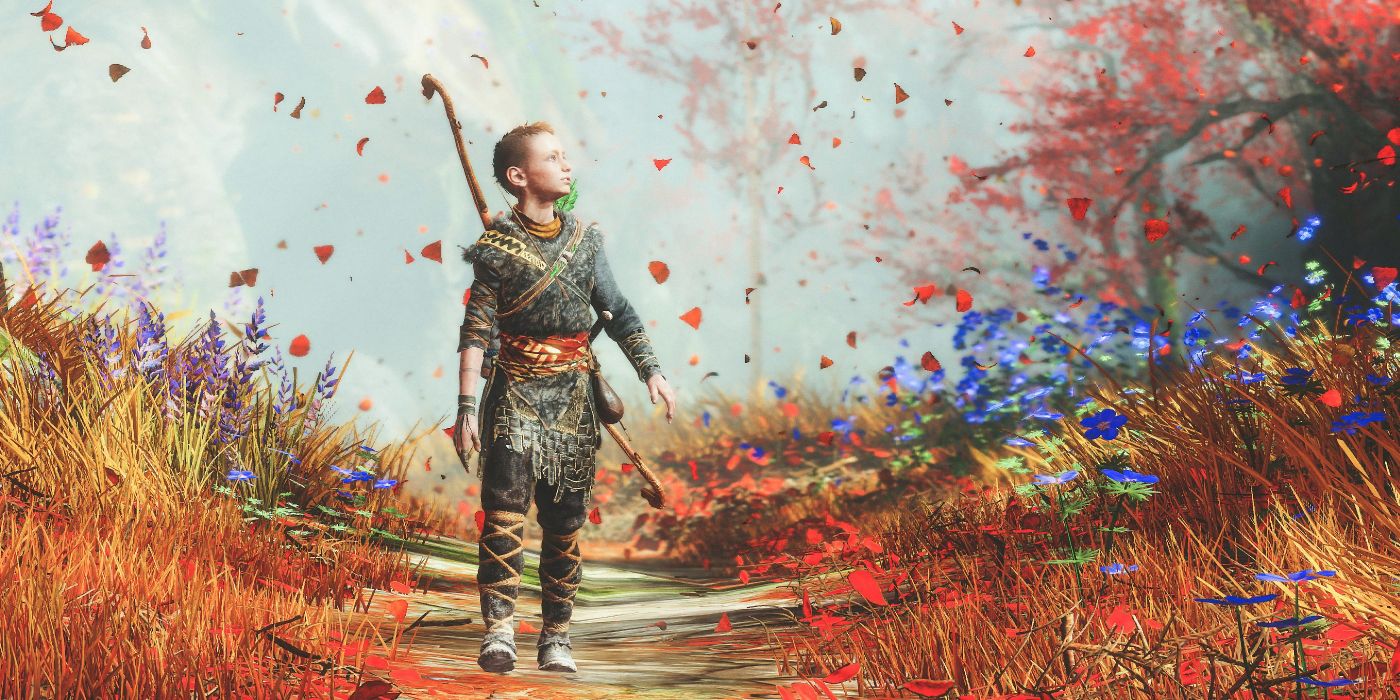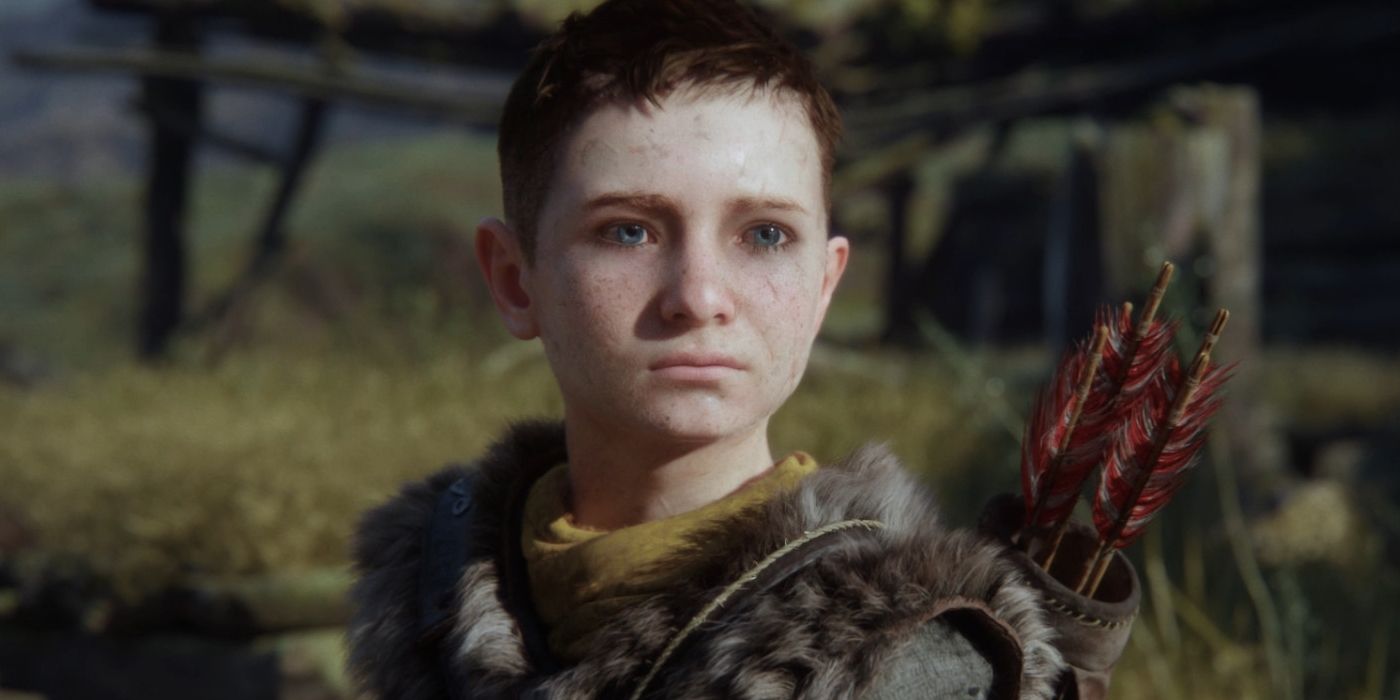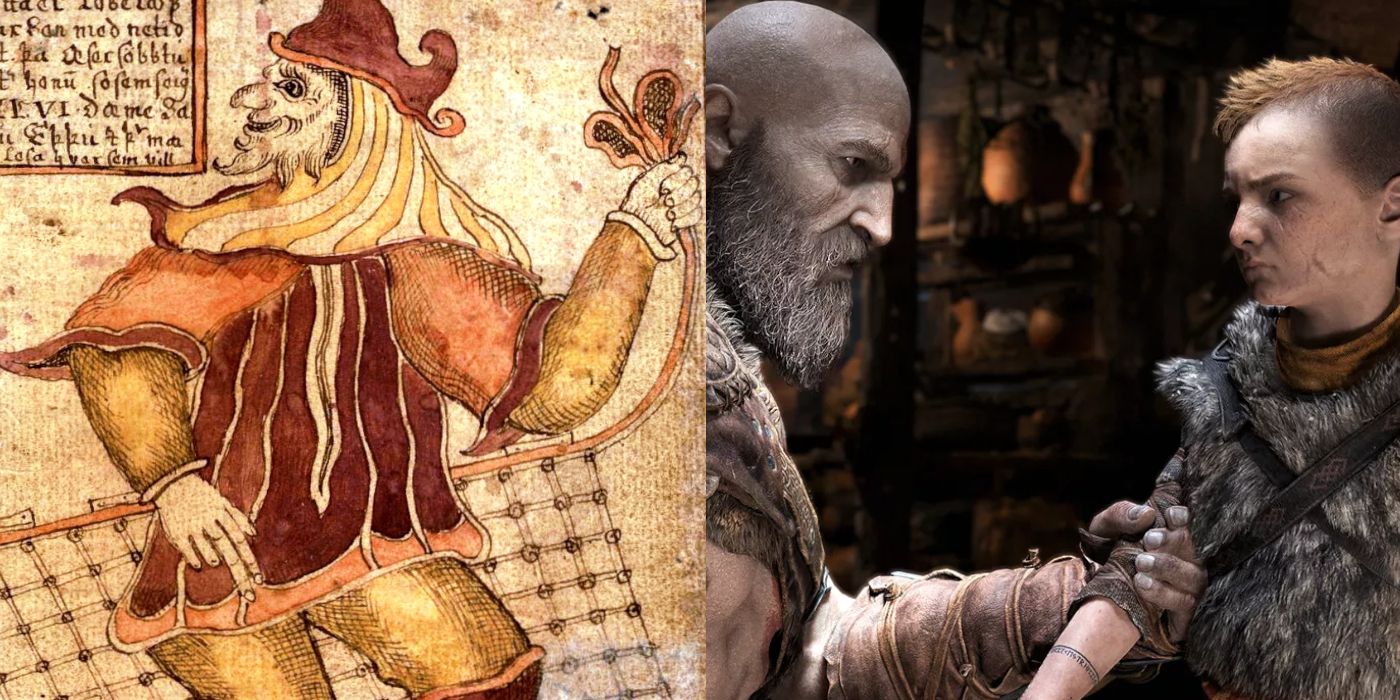Santa Monica Studio's God of War reboot captivated audiences around the world with an epic, mythology-infused tale when it launched on PS4 in 2018. Despite taking place from the perspective of longtime series protagonist Kratos, as the dust settled on the opening Norse saga of the former Greek deities' life, all eyes were firmly set on his young son Atreus. While Sony is likely to unveil God of War's untitled sequel soon, fans are still reeling from the shock twist at the end of the game that their traveling companion was actually Loki all along.
Revealing that the destined Norse God of Mischief was present throughout the adventure seems like an especially fitting bit of narrative misdirection on the part of Santa Monica. Beyond offering a shocking cliff-hanger to proceedings, it also has wide spread implications not only for the 2018 God of War, but also the PS5 and PS4-bound sequel. With Ragnarok teased to be coming one way or another, it's therefore important to understand how the young archer can be such a revered character.
The Atreus-Loki Twist
Throughout God of War, Atreus' origins are the main narrative thread that drives the story along, as players forge a bond with their virtual son at the same time that Kratos does. For a majority of the game, the boy's identity is explored through the lens of his connection to his father, with signs like a developing rage suggesting that he might mirror the journey that Kratos himself has walked. With the franchise having charted the former God of War's time in Ancient Greece all the way to a bloody climactic conclusion at the end of God of War 3, expectations are manipulated using this established history. However, questions which are seemingly brushed under the carpet surrounding the boy's unseen mother turn out to be of equal importance in the grand scheme of things.
Despite being the character that sets the entire game into motion, little about Kratos' second wife is given away to the player during the quest to spread her ashes in the realm of Jotunheim. Having been referred to throughout God of War as Faye, it's revealed as the pair reach their final destination that even that tiny detail about her life isn't exactly the whole truth, either. A series of stone murals wait for the pair at the end of their journey, which reveal that Faye was originally a Jotnar known as Laufey the Just who fled from her people before Thor purged the realm. Not only does this discovery mean that Atreus is actually a quarter Giant himself, but the crumbling walls of the fallen civilization also refer to him exclusively by his given Jotnar name, Loki.
As far as twist endings go, the one served up by Santa Monica Studio is up there with the most memorable in all of gaming. Kratos being a closed book most of the time also feeds into the impact of the revelation, as he gives little exposition away during the game about the circumstances of how he and Laufey met. While the pair theorize that she must have had a good reason for keeping her identify a secret, this is one area where the audience has more puzzle pieces than the characters. As the stone murals and repeated encounters with Baldur suggest, Loki and Kratos are fated to play central roles in the apocalyptic Ragnarok. Having clearly known about this beforehand, it stands to reason that Laufey likely wished to spare her loved ones from the knowledge of this fate before they were ready.
The Atreus-Loki Hints
In some ways, Santa Monica Studio diverges from the success of the Marvel variant of Loki, setting up a character that shares little in common with the untrustworthy trickster that's recently appeared all over the big screen. Part of the reason Atreus' dual identity reveal works so well is because it's hard to see coming based on what audiences have grown to expect. However, that doesn't mean an unprompted heel turn towards villainy is now guaranteed to be on the cards. Even though there's no single defined version of Norse mythology, going forward fans of the franchise should still expect to see a version of the character that parallels folklore more closely than Tom Hiddleston's depictions of Loki.
Throughout the first Norse themed entry in the franchise, there were more than a few hints that pointed towards this being the case all along. The biggest of which happened towards the end of the game during one of God of War 2018's handful of boss fights. In both the mythological and game universes, a mistletoe arrow is provided by Loki and Atreus in a way that ultimately proves to be the catalyst for Baldur's death. Even though Kratos was the one that struck the deciding blow, it appears that Odin will place as much responsibility for his son's demise on Atreus in the next installment. That lines up remarkably well with the established literature, too, as Loki was said to have been imprisoned at one point for the same transgression.
This is far from the only hint that the Loki-themed mic drop is coming, however. Several seemingly throwaway lines out of context, like Atreus declaring he wishes he could turn into a wolf, are all allusions to his real identity. With hindsight, one of the most ominous of these comes curtesy of the decapitated head Mimir, who picks up on a familiarity between Atreus and Jormungandr, aka the World Serpent. As impossible as it is to imagine, this line of dialogue is actually in reference to the fact that the giant snake is the future son of Loki. In mythology, the creature is transported back in time following a fight with Thor during Ragnarok, so there's a chance that this will play out in real time during the upcoming God of War sequel.
Being so closely based on an established fictional character ensures that there's going to be deeper ramifications to Atreus' real identity beyond shock value in the next God of War game. This is mostly down to the fact that all incarnations of the old Norse religion place Loki within a central role when it comes to the apocalyptic Ragnarok. Having been incarcerated and forced to watch the death of his family, the folkloric Loki vows vengeance upon the Norse Gods whilst leading an army of Giants against them. Not only have those events been prophesized already within the Jotunheim murals, they also ominously parallel Kratos' Greek-themed story.
The untitled God of War sequel is in development for PS5 and PS4.



